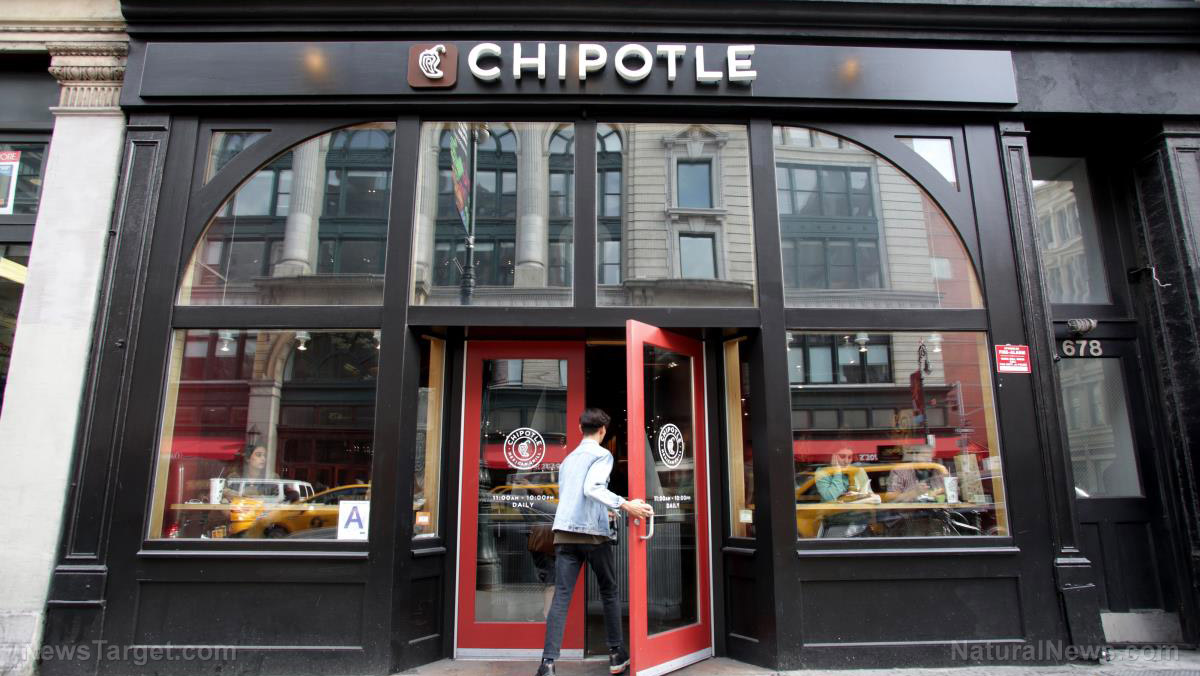 Parler
Parler Gab
Gab
- Chipotle's stock plummeted after slashing its sales outlook.
- Young and lower-income customers can no longer afford to eat there.
- The company is seeing a "K-shaped" economic split among consumers.
- Its CEO notes customers are leaving for more affordable grocery options.
- The situation signals deep-seated economic trouble for a core American demographic.
A K-shaped economic reality
The situation at Chipotle serves as a microcosm of what economists call a "K-shaped" economy. This is where affluent consumers continue to spend freely, buoyed by stock market gains and job security, while those with lower incomes are forced to make significant cutbacks. For Chipotle, this bifurcation is critical. Households earning $100,000 or less make up about 40% of its total sales, and this group has been "further reducing frequency," according to the company's earnings call. Boatwright was clear that the chain isn't losing these customers to competitors but to the grocery store. "We're losing them to grocery and food at home," he said, noting that customer surveys showed many now believe Chipotle is no longer affordable. This pullback is so severe that the company expects the first quarter of 2026 to "be the toughest" for these middle- and low-income consumers, signaling many more months of financial strain for a core part of the American populace.A bleak outlook for the future
The numbers tell an upsetting story. Chipotle now expects same-store sales to decline in the low-single-digit range for the year, a dramatic shift from earlier, more optimistic forecasts. In the third quarter, a meager 0.3% rise in same-store sales was driven entirely by higher menu prices, which managed to offset a concerning drop in customer traffic. This indicates that even those who are still visiting are doing so less often, and fewer new customers are walking through the door. The fallout was immediate and brutal on Wall Street. The stock's plunge dragged its market value down dramatically, with shares hitting their lowest level in more than two years. At least five Wall Street analysts cut their price targets, with Citi analyst Jon Tower noting the difficulty in calling "a bottom for sales given the multitude of factors weighing on demand." The decline also spooked investors in other fast-casual chains, pulling down stocks of competitors like Sweetgreen and Cava. Federal Reserve Chair Jerome Powell recently acknowledged this economic split, confirming the anecdotes from corporate America. "If you listen to the earnings calls or the reports of big public consumer-facing companies, many, many of them are saying there is a bifurcated economy there and that consumers at the lower end are struggling and buying less and shifting to lower-cost products," Powell stated. This official recognition does little to ease the pain for those feeling the pinch, however. The struggles of this younger generation are a potent indicator of long-term economic trouble. When a cohort that should be entering its prime earning and spending years is instead retreating from basic consumer activities, it points to deep-seated problems with wage growth, employment stability, and crushing debt loads. The fact that a burrito chain has become the canary in the coal mine for this crisis speaks volumes about the everyday financial pressures millions of Americans now face. For a generation already skeptical about its financial future, the inability to afford a casual meal out is a small but symbolic defeat, and a warning sign that the economy's foundation is cracking for those who are not at the top. Sources for this article include: Finance.Yahoo.com CNBC.com Reuters.com CNBC.comNovatek chair: EU phase-out of Russian gas could spark “unprecedented” price surge
By Patrick Lewis // Share
Major automakers report DROP in EV sales following end of federal tax credits
By Ramon Tomey // Share
Calcium propionate: What you need to know about the preservative in your bread
By Laura Harris // Share
By Lance D Johnson // Share
Oatly’s collapse exposes consumer-fatigue toward climate “doom-and-gloom” marketing
By Ramon Tomey // Share
Farmers sound alarm: Woke methane policy causing mass cattle deaths, milk shortages
By Willow Tohi // Share
Governments continue to obscure COVID-19 vaccine data amid rising concerns over excess deaths
By patricklewis // Share
Tech giant Microsoft backs EXTINCTION with its support of carbon capture programs
By ramontomeydw // Share
Germany to resume arms exports to Israel despite repeated ceasefire violations
By isabelle // Share










